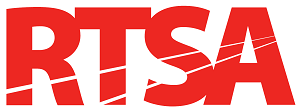RTSA Member David Jehan receives Engineering Heritage Award 2015
Start date: 19-Dec-2015
End date: 19-Dec-2015
Congratulations to RTSA member David Jehan who has been awarded the Engineering Heritage Award for excellence in an engineering heritage publication from Engineers Australia for his book ‘A History of Tulloch, Engineers and Manufacturers, Pyrmont and Rhodes, 1883 to 1974’.
Known as the Colin Crisp Award, this is Australia’s premier award for excellence in Engineering Heritage projects. It is awarded biennially at the National Engineering Heritage Conference, and this year was held in Newcastle 7-9 December 2015. See below for Engineers Australia’s citation of David Jehan’s book:
A History of Tulloch, Engineers and Manufacturers
In June 2015 professional engineer and author David Jehan published a 296 page history ofthe Sydney engineering firm Tulloch Limited, a heavy and general engineering company, which had an enormous range of products.
The aim of recording the history of engineering organisations such as Tulloch Limited is to document engineering and manufacturing achievements and contributions to Australia before the history is lost.
The project has involved much research over the last seven years and has drawn heavily from the collections of the Tulloch family and the National Library of Australia.
The business founder, Robert Tulloch arrived in Sydney from the Orkney Islands in 1877 with virtually nothing and managed to get a job as a boilermaker with the Atlas Foundry andEngineering Company.
In 1883, he started Robert Tulloch and Company in Pyrmont, where it operated until 1915. Itwas from this location that the company supplied structural steelwork for many notable Sydney buildings, built railway bridges and entered the rolling stock business.
In 1915 the company moved to Rhodes where it diversified into many fields. It pioneered the manufacture of steel tube and fittings in Australia during the depression and produced a wide range of garden tools. The foundry produced many items for industry and domestic use,including cast iron water pipe.
During World War II they made many contributions to the war effort, including the manufactureof components for the Australian Cruiser tanks and construction of ocean-going lighters for the US and Australian Armies. Tulloch became a major supplier of steel-framed housing and portable class rooms for schools post World War II.
In the area of rolling stock, the company built railway carriages of many types. They are most noted for the design and construction of the first double-deck carriages for Sydney and the first powered double-deck train in the world. Large bogie freight vehicles were a specialty, especially wheat and coal hoppers and tank cars. The company became specialistsin aluminium construction and built the world’s first aluminium self-supporting tank car. All manner of diesel locomotives were built as well as diesel-hydraulic railcars for NSW and Victoria.
The company closed in 1974 after ninety-one years of operation. Four decades later David Jehan has meticulously recorded the history and achievements of this family business in photos and very readable text.
Congratulations once again David on such a wonderful achievement and contribution to the Australian rail industry!
RTSA
